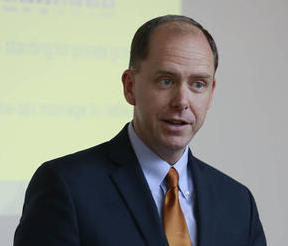The Ruling Heard Round The World
United Families International is deeply disappointed by today’s Supreme Court ruling making same-sex marriage legal the United States. This ruling by 5 out of 9 unelected judges not only robs Americans of the “freedom to govern themselves,” it is “so dangerous for religious liberty and free speech.”
In 1775, the “shot heard round the world” began the American Revolutionary War, which helped secure freedom in America. With today’s “ruling heard round the world,” that hard-won door begins to close.
As we come to grips with how to navigate this new world, we invite you to read UFI Board Member Bill Duncan’s eye-opening analysis of the Supreme Court Ruling, below.
We also invite you and your family to watch an excellent documentary, “First Freedom: The Fight for Religious Liberty,” which will be shown on many PBS stations on July 3 and 4.
May God bless America — and families throughout the world,
 Laura Bunker
Laura Bunker
United Families International President
______________________________
Marriage and the Constitution: It’s All About Me
By William C. Duncan
Invoking vague catchphrases and platitudes about the autonomous self, a bare majority of the U.S. Supreme Court ruled this morning that the Fourteenth Amendment contained a hitherto unknown requirement that each State redefine marriage to include same-sex couples.
This requirement, Justice Anthony Kennedy said, comes from “rights that allow persons, within a lawful realm, to define and express their identity.” Claiming a “new insight” into what the Constitution requires, the Court says four principles support its holding: (1) “the right to personal choice regarding marriage is inherent in the concept of individual autonomy,” (2) “the right to marry is fundamental because it supports a two-person union unlike any other in its importance to the committed individuals,” (3) marriage “safeguards children and families . . . By giving recognition and legal structure to their parents’ relationship,” and (4) “marriage is a keystone of our social order” through which “society pledge[s] to support the couple, offering symbolic recognition and material benefits to protect and nourish the union.”
The majority opinion repeatedly accuses those who believe marriage is the union of a husband and wife of “demeaning” people in same-sex couples, “impos[ing] stigma.” It says of same-sex couples, that the failure to redefine marriage “would disparage their choices and diminish their personhood to deny them this right.”
In sum, to the Court, not only marriage but the very Constitution is just a vehicle for ensuring adults feel affirmed in their personal choices. Children who are separated from a mother and father as a result of this new definition of marriage will have to console themselves with the knowledge that at least the relationship of the two adults raising them is not considered “lesser” than that of a mother and father committed to one another and the child their union has created.
In this decision, marriage is “all about me” and so is the Constitution. In fact, so is Constitutional law, because the meaning of the Constitution, it is clear, is entirely the product of the majority of the justices’ views of what that document should mean.
The majority, knowing that its labeling of those who disagree will have implications for religious liberty, contains this reassurance: “religions, and those who adhere to religious doctrines, may continue to advocate with utmost, sincere conviction that, by divine precepts, same-sex marriage should not be condoned.” As Chief Justice John Roberts notes, “The First Amendment guarantees, however, the freedom to ‘exercise’ religion. Ominously, that is not a word the majority uses.”
In dissent, Chief Justice John Roberts put the matter well:
The majority’s decision is an act of will, not legal judgment. The right it announces has no basis in the Constitution or this Court’s precedent. The majority expressly disclaims judicial “caution” and omits even a pretense of humility, openly relying on its desire to remake society according to its own “new insight” into the “nature of injustice.” Ante, at 11, 23. As a result, the Court invalidates the marriage laws of more than half the States and orders the transformation of a social institution that has formed the basis of human society for millennia, for the Kalahari Bushmen and the Han Chinese, the Carthaginians and the Aztecs. Just who do we think we are?
The funniest response came from Justice Antonin Scalia:
If, even as the price to be paid for a fifth vote, I ever joined an opinion for the Court that began: “The Constitution promises liberty to all within its reach, a liberty that includes certain specific rights that allow persons, within a lawful realm, to define and express their identity,” I would hide my head in a bag. The Supreme Court of the United States has descended from the disciplined legal reasoning of John Marshall and Joseph Story to the mystical aphorisms of the fortune cookie.
The Court’s treatment of marriage and self-government is not something to laugh about. As Justice Alito explains:
Perhaps recognizing how its reasoning may be used, the majority attempts, toward the end of its opinion, to reassure those who oppose same-sex marriage that their rights of conscience will be protected. We will soon see whether this proves to be true. I assume that those who cling to old beliefs will be able to whisper their thoughts in the recesses of their homes, but if they repeat those views in public, they will risk being labeled as bigots and treated as such by governments, employers, and schools.
The view of certain elites about the meaning of marriage has now been adopted as official constitutional law. That will make it more difficult to continue to defend the entitlement of children to a married mother and father but it makes it no less imperative. Today’s decision also makes imperative that we figure out ways to protect the liberties of those who disagree with the Court majority about the nature of marriage.
We have our work cut out for us.
 William C. Duncan is the director of the Marriage Law Foundation and of the Sutherland Institute’s Center for Family and Society. He was previously acting director of the Marriage Law Project at the Catholic University of America’s Columbus School of Law and executive director of the Marriage and Family Law Research Grant at J. Reuben Clark Law School, Brigham Young University, where he was also a visiting professor. He has published numerous articles on constitutional and family law issues in a variety of legal journals.
William C. Duncan is the director of the Marriage Law Foundation and of the Sutherland Institute’s Center for Family and Society. He was previously acting director of the Marriage Law Project at the Catholic University of America’s Columbus School of Law and executive director of the Marriage and Family Law Research Grant at J. Reuben Clark Law School, Brigham Young University, where he was also a visiting professor. He has published numerous articles on constitutional and family law issues in a variety of legal journals.
